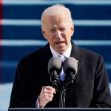On Monday, February 1, 2021, the Justice Department requested that the U.S. Appeals Court for the District of Columbia put the California emissions litigation on hold to “ensure due respect for the prerogative of the executive branch to reconsider the policy decisions of a prior administration.”
A coalition of 12 states, led by Ohio’s Attorney General Dan Yost, Republican, opposes efforts to put the case on hold, arguing that it should be allowed to proceed so the court can determine whether it’s constitutional for the federal government to grant California a waiver. “It would behoove all parties to know the answer to that question before not after, the federal government considers again whether to grant California a waiver,” attorneys general for the states wrote in a court filing.
On Tuesday, February 2, Toyota Motor Corp., Stellantis, and other automakers in a group called the Coalition for Sustainable Automotive Regulation (CSAR), who had previously joined the Trump administration’s challenge of California’s authority on auto emissions, abandoned their stance. They say now that they want to work with Biden on new rules.
This move represents a shift in the auto industry’s support for Trump’s efforts to strip California of its power to set stricter regulations than the federal government on tailpipe emissions. The automakers say their withdrawal from the legal challenge is a goodwill gesture to the new Biden administration. The new administration has promised to include California in its efforts to enact tougher auto-emissions standards and hurry the auto industry’s shift to electrification.
California has had this authority for decades, which means it has a huge influence in setting environmental rules limiting tailpipe pollutants for automakers. At least thirteen other states follow California’s regulations, which strengthens California’s voice in shaping industry production.
Some execs in the auto industry supported Trump’s attempts to roll back Obama-era fuel economy and emissions rules, claiming the greener standards don’t align with what buyers want. Auto executives began lobbying Trump right after his election, hoping to get him to revise the limit on greenhouse-gas emissions and a 5% annual increase in fuel economy that the Obama administration required to be continued into the mid-2020s. Obama’s increase in fuel economy would result in an average mpg of 46.7.
At first, the Trump administration suggested eliminating any annual increases, but California and other states’ strong opposition created industry concern that a lengthy legal fight and uncertain long-term targets would compromise product planning. In March 2020, the Trump administration finalized a rollback of U.S. Corporate Average Fuel Economy standards to require 1.5% annual increases through 2026.
In a 2019 deal between Ford, Honda, Volkswagen, BMW and California, these automakers agreed not to challenge California’s authority. This move provoked the Trump administration to initiate an anti-trust investigation into the group and push to revoke California’s regulatory power.
Toyota, Stellantis, General Motors and others signed on to support the Trump administration against California in a court case, claiming that the emissions policy should be solely in the purview of the federal government. California’s response was to say that it would no longer purchase government vehicles from companies that challenged its authority.
With the change in presidents, auto executives are saying that they realize stricter rules are coming and they will have to compromise with California.
GM’s Chief Executive Mary Barra wrote, “We are confident that the Biden administration, California, and the U.S. auto industry, which supports 10.3 million jobs, can collaboratively find the pathway that will deliver an all-electric future.” GM dropped out of the lawsuit weeks after Biden was elected. GM also announced its goal of phasing out vehicles that require gasoline and diesel fuel by 2035.
Nissan dropped out of the lawsuit in December.
Toyota, Fiat Chrysler, Hyundai, Kia, Mitsubishi, Mazda and Subaru issued a joint statement through CSAR on February 2 declaring their withdrawal from the case as well “in a gesture of good faith and to find a constructive path forward” with Biden. These automakers, together with the National Automobile Dealers Association, said they were on board “with the Biden administration’s goals to achieve year-over-year improvements in fuel economy standards.”
A Hyundai spokesperson said, “We believe the Biden administration has outlined a clear plan to achieve significant reductions in carbon emissions.” Mazda’s spokesperson said Mazda “supports establishing a revised, single national fuel economy program that achieves GHG emissions improvements and provides for a balance of environmental progress, safety, affordability, innovation and jobs” and that it looks forward to working with the Biden administration.
Biden’s executive actions immediately after his inauguration show that he is committed to addressing climate concerns. Among his executive orders was the revisiting of emissions targets set by the Trump administration. He directed agencies to quickly reconsider Trump’s 2019 revocation of California’s authority to set its own tailpipe emissions standards as well as Trump’s national fuel economy rollback.
The Alliance for Automotive Innovation, an auto industry trade group that represents all the automakers that were involved in the legal challenge, said a new nationwide emissions deal “should achieve improvements in GHG (greenhouse gas) emissions roughly midway between current standards and those of the former Obama administration.”






